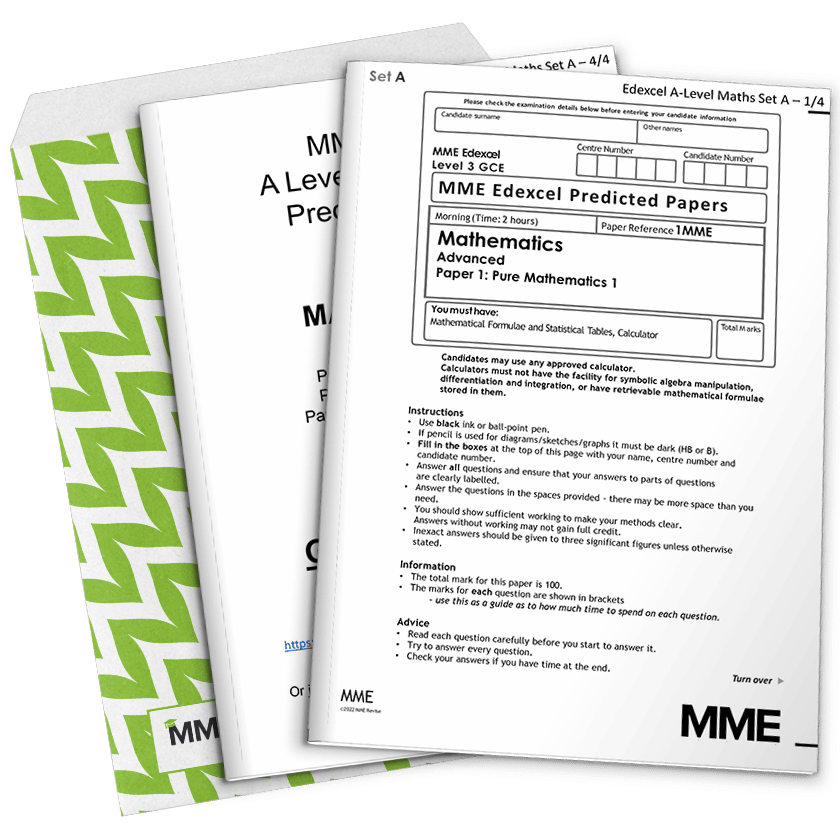Surds
Surds Revision
Surds
A surd is a number that can’t be simplified to remove a root (square root, cube root etc.), e.g. \sqrt{2}, \sqrt{3}, \sqrt{6}
There are 7 skills you need to learn for surds.
Skill 1: Adding and Subtracting Surds
You can only add and subtract “like” surds.
Example:
\begin{aligned} \sqrt{a} + \sqrt{a} &= 2 \sqrt{a} \\ 7 \sqrt{2} - 3 \sqrt{2} &= 4 \sqrt{2} \end{aligned}
Note: Don’t do this:
\cancel{\sqrt{a} + \sqrt{b} = \sqrt{a+b}}
Skill 2: Multiplying Surds
To multiply surds, you just need to multiply the numbers inside the square root.
\sqrt{\textcolor{blue}{a}} \times \sqrt{\textcolor{red}{b}} = \sqrt{\textcolor{blue}{a}} \sqrt{\textcolor{red}{b}} = \sqrt{\textcolor{blue}{a} \textcolor{red}{b}} = \sqrt{\textcolor{blue}{a} \times \textcolor{red}{b}}
Example:
\begin{aligned} \sqrt{2} \times \sqrt{3} &= \sqrt{2 \times 3} = \sqrt{6} \\ 2 \sqrt{3} \times 4 \sqrt{5} &= 2 \times 4 \times \sqrt{3 \times 5} = 8 \sqrt{15} \end{aligned}
Skill 3: Squaring Surds
Squaring surds is an extension on Skill 2. Squaring a surd gives the number inside the surd on its own.
(\sqrt{\textcolor{red}{a}})^2 = \sqrt{\textcolor{red}{a}} \sqrt{\textcolor{red}{a}} = \textcolor{red}{a}
Example:
\begin{aligned} (\sqrt{5})^2 &= \sqrt{5} \sqrt{5} = 5 \\ (2 \sqrt{3})^2 &= 2^2 \times (\sqrt{3})^2 \\ &= 4\times3=12 \end{aligned}
Skill 4: Dividing Surds
To divide surds, you just need to divide the numbers inside the square root.
\dfrac{\sqrt{\textcolor{blue}{a}}}{\sqrt{\textcolor{red}{b}}} = \sqrt{\dfrac{\textcolor{blue}{a}}{\textcolor{red}{b}}}
Example:
\begin{aligned} \dfrac{\sqrt{12}}{\sqrt{4}} &= \sqrt{\dfrac{12}{4}} = \sqrt{3} \\ \dfrac{6 \sqrt{10}}{2 \sqrt{5}} &= \dfrac{6}{2} \times \dfrac{\sqrt{10}}{\sqrt{5}} = 3 \times \sqrt{\dfrac{10}{5}} = 3 \sqrt{2} \end{aligned}
Skill 5: Simplifying Surds
You can simplify a surd if the number underneath the square root has a square number as one of its factors. There may be more than one way to simplify a surd.
Example: Write \sqrt{20} in its simplest form.
Think of a square number that is a factor of 20
4 is a factor of 20:
\textcolor{blue}{4} \times 5 = 20
So,
\begin{aligned} \sqrt{20} &= \sqrt{\textcolor{blue}{4} \times 5} = \sqrt{\textcolor{blue}{4}} \times \sqrt{5} \\ &= \textcolor{blue}{2} \times \sqrt{5} = \textcolor{blue}{2} \sqrt{5} \end{aligned}
Skill 6: Surds and Double Brackets
You can multiply out double brackets containing surds using the same technique that you would for normal double brackets.
Example: Expand and simplify (3 \sqrt{5} + 2 \sqrt{2})^2
\begin{aligned}(3 \sqrt{5} + 2 \sqrt{2})^2&= (3 \sqrt{5} + 2 \sqrt{2})(3 \sqrt{5} + 2 \sqrt{2}) \\[1.2em]&= (3 \sqrt{5})^2 + (2 \times 3 \sqrt{5} \times 2 \sqrt{2}) + (2 \sqrt{2})^2 \\[1.2em]&= (3^2 \times \sqrt{5}^2) + (2 \times 3 \times 2 \times \sqrt{5} \times \sqrt{2}) + (2^2 \times \sqrt{2}^2) \\[1.2em]&= (9 \times 5) + (12 \times \sqrt{10}) + (4 \times 2) \\[1.2em]&= 45 + 12 \sqrt{10} + 8 \\[1.2em]&= 53 + 12 \sqrt{10}\end{aligned}
Skill 7: Rationalising the Denominator
To rationalise the denominator, you need to remove the surd from the bottom of the fraction. There are two different types of rationalising the denominator you will see, one easy and one hard.
Example: Rationalise the denominator of the following fraction: \dfrac{6}{\sqrt{2}}
Multiply the top and bottom of the fraction by the denominator.
\dfrac{\textcolor{blue}{6}}{\textcolor{red}{\sqrt{2}}} \times \dfrac{\textcolor{red}{\sqrt{2}}}{\textcolor{red}{\sqrt{2}}} = \dfrac{6 \sqrt{2}}{2} = 3 \sqrt{2}
Example: Rationalise the denominator of the following fraction: \dfrac{4}{2 + \sqrt{5}}
Multiply the top and bottom of the fraction by the denominator, with the sign changed. So, + is changed to - and vice versa.
\begin{aligned} \dfrac{\textcolor{blue}{4}}{\textcolor{red}{2 + \sqrt{5}}} &= \dfrac{\textcolor{blue}{4}}{\textcolor{red}{2 + \sqrt{5}}} \times \dfrac{\textcolor{limegreen}{2 - \sqrt{5}}}{\textcolor{limegreen}{2 - \sqrt{5}}} \\[1.2em] &= \dfrac{\textcolor{blue}{4} \textcolor{limegreen}{(2 - \sqrt{5})}}{\textcolor{red}{(2 + \sqrt{5})} \textcolor{limegreen}{(2 - \sqrt{5})}} \\[1.2em] &= \dfrac{8 - 4 \sqrt{5}}{4 - 2 \sqrt{5} + 2 \sqrt{5} - 5} \\[1.2em] &= \dfrac{8 - 4 \sqrt{5}}{4 - 5} \\[1.2em] &= \dfrac{8 - 4 \sqrt{5}}{-1} \\[1.2em] &= -8 + 4 \sqrt{5} \end{aligned}
Surds Example Questions
Question 1: Simplify (4\sqrt{5})^2
[1 mark]
Question 2: Simplify (3 + \sqrt{3})(2 - \sqrt{3})
[2 marks]
\begin{aligned} (3 + \sqrt{3})(2 - \sqrt{3}) &= 6 - 3 \sqrt{3} + 2 \sqrt{3} - \sqrt{3}^2 \\ &= 6 - \sqrt{3} -3 \\ &= 3 - \sqrt{3} \end{aligned}
Question 3: Rationalise the denominator of \dfrac{10}{\sqrt{5}}
[2 marks]
Question 4: Rationalise the denominator of \dfrac{3 + \sqrt{5}}{1 - \sqrt{5}}
[4 marks]
You May Also Like...

MME Learning Portal
Online exams, practice questions and revision videos for every GCSE level 9-1 topic! No fees, no trial period, just totally free access to the UK’s best GCSE maths revision platform.






